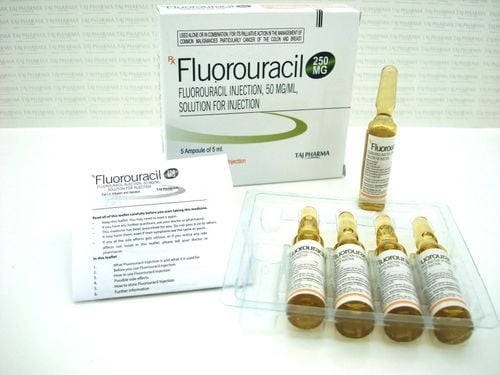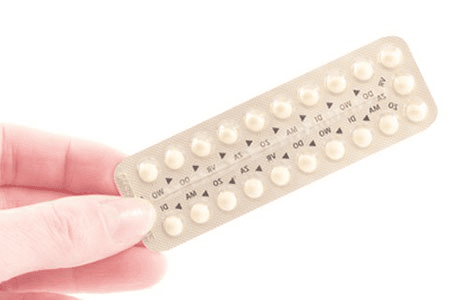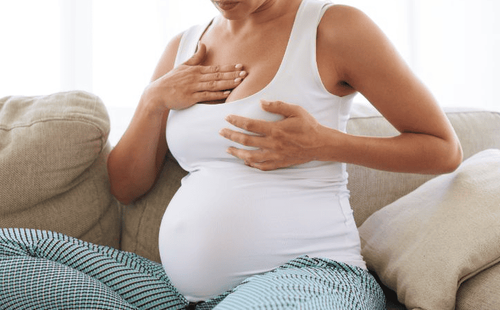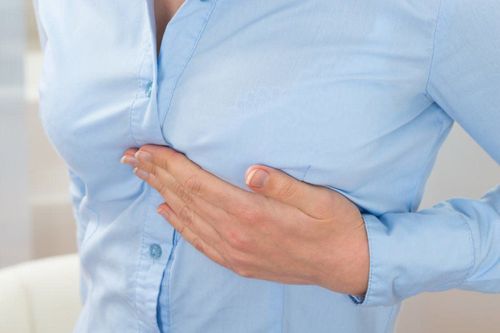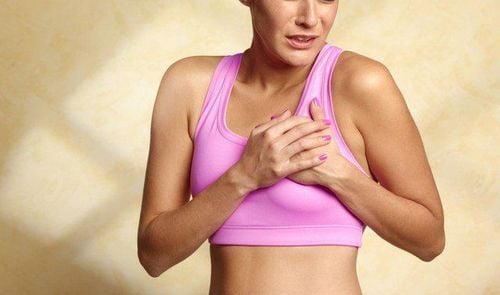This is an automatically translated article.
Breast cancer is one of the most common cancers in women. In the United States, 1 in 8 women will be affected by invasive breast cancer during their lifetime.
1. Breast Cancer Overview
Breast cancer tops the list of common malignancies in women. However, it is worth noting that men are still able to develop breast cancer, although the frequency is less than 1% of all cases.
DNA damage and genetic mutations are identified as causes of breast cancer. Expression of certain genes, including BRCA1 and BRCA2 has been identified that may increase the risk of breast cancer in 1 person. Breast lesions such as breast cysts have also been reported in some cases of breast cancer. However, the causal relationship between them is still unclear. People with breast cysts are often worried about their risk of developing breast cancer.
In fact, lifestyle also plays an important role in the development of various malignancies. Studies have linked heavy drinking, smoking, estrogen exposure, and certain diets — including the Western diet high in processed foods — and risk. breast cancer risk. In contrast, the Mediterranean eating pattern has been shown to reduce the risk of breast cancer.
2. What do people with breast cysts eat?
Many people know that certain foods have the ability to prevent and reduce the risk of cancer, including breast cancer. However, there are actually several other foods that can also increase your risk. Below are some foods and drinks that people with breast cysts should limit or avoid altogether:
Alcohol: Abuse of alcohol can significantly increase the risk of breast cancer. Fast food: The habit of consuming fast foods on a regular basis has been linked to many adverse health effects, including an increased risk of cardiovascular disease, diabetes, obesity, and breast cancer. Fried food: Many people believe that eating a lot of fried food can significantly increase the risk of breast cancer. Indeed, in a study of 620 Iranian women, eating fried food was identified as the biggest risk factor for developing breast cancer. Processed meats: Processed meats like bacon and hot dogs may increase the risk of developing breast cancer. Fifteen studies were combined and found a link between eating a lot of processed meat and a 9% increased risk of breast cancer. Sugar: A diet high in sugar can significantly increase breast cancer risk through increased inflammation and the expression of certain enzymes involved in the growth of cancer cells. Refined carbs: A diet rich in refined carbs, including the typical Western diet, may increase your risk of breast cancer. Refined starches such as white bread and sugary baked goods should gradually be replaced with products made from whole grains and vegetables, which are rich in nutrients.
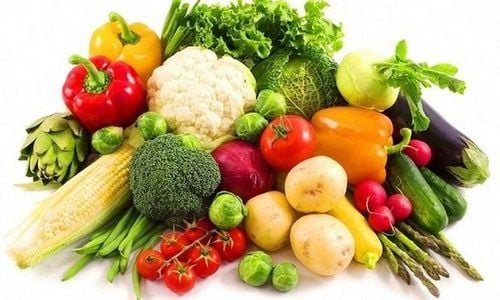
Các loại rau lá xanh là nguồn thực phẩm có hàm lượng folate cao, một chất khác bảo vệ cơ thể bị u nang vú khỏi ung thư
2. What should people with breast cysts eat to prevent breast cancer?
The combination of many factors determines the formation of breast cancer in a given person. Obviously, a healthy diet can improve overall health and reduce the risk of general malignancies. However, even if you are maintaining a good diet, you still need to be screened for breast cancer regularly with measures such as mammograms and regular breast self-exams. Early detection and diagnosis is the right strategy to increase the survival rate of patients.
Some studies show that the following foods may reduce the risk of breast cancer.
2.1 Green Leafy Vegetables Kale, arugula, spinach, collard greens, and bok choy are some green leafy vegetables that may have cancer-fighting properties. Green leafy vegetables contain carotenoid antioxidants, including beta carotene, lutein and zeaxanthin. High levels of these substances in the blood are associated with a reduced risk of breast cancer. An analysis of eight studies involving 7,000 people found that women with higher levels of carotenoids had a significantly reduced risk of breast cancer. Likewise, a follow-up study of 32,000 women showed that when total blood levels of carotenoids were high, the risk of developing new breast cancer decreased by 18–28%. At the same time, the risk of disease recurrence and mortality in people who already have breast cancer are also significantly reduced. In addition, green leafy vegetables are also a good source of folate, another substance that protects the body against breast cancer.
2.2 Citrus Fruits Citrus fruits are full of compounds that may protect against breast cancer, including folate, vitamin C and carotenoids, a group of flavonoid-based antioxidants like quercetin, hesperetin, and naringenin. . A combination of six different studies involving more than 8,000 people found that a high intake of citrus fruits reduced the risk of breast cancer by 10%.
2.3 Fatty fish Fatty fish is a fresh, delicious food favorite, ranging in variety including salmon, sardines and mackerel, known for its impressive health benefits. Omega-3 fats, selenium and antioxidants like canthaxanthin in fish may have protective effects against cancer, including breast cancer. A large analysis of 26 studies involving 883,000 people found that those who got enough omega-3s from seafood had a 14% reduced risk of breast cancer. Other studies concur with similar findings. A balanced diet with an omega-3 to omega-6 ratio may help reduce the risk of breast cancer.
2.4 Berries Regular intake of berries and berries may help reduce the risk of some cancers, including breast cancer. Antioxidants in berries, including flavonoids and anthocyanins, have been shown to protect against cell damage, as well as the growth of cancer cells. A large study of 75,929 women demonstrated an association between a high intake of berries, especially blueberries, and a lower risk of developing estrogen receptor negative (ER−) breast cancer.
2.5 Fermented Foods Fermented foods like yogurt, kimchi, miso and sauerkraut contain probiotics that may protect against breast cancer. A review of 27 studies linked the consumption of fermented dairy products, including yogurt and kefir, with a reduced risk of breast cancer in both Western and Western populations. Asia.
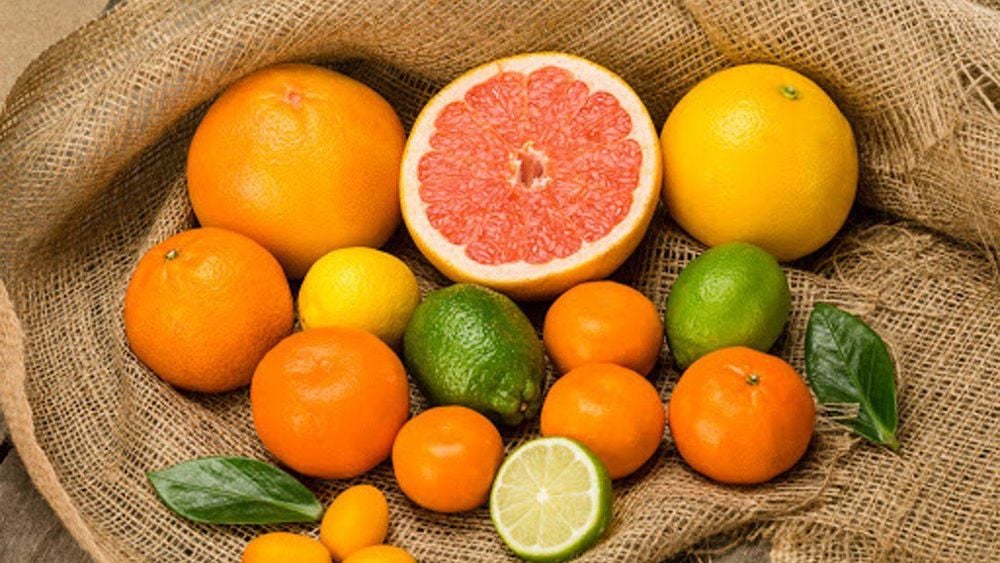
Trái cây họ cam quýt chứa đầy các hợp chất có thể bảo vệ chống lại bệnh ung thư khi bị u nang vú
2.6 Allium vegetables Garlic, onions are common allium vegetables. They contain many nutrients, including organosulfur compounds, flavonoid antioxidants, and vitamin C. As a result, garlic and onions may have powerful anti-cancer abilities. A study in 660 women in Puerto Rico found that eating more garlic and onions reduced the risk of breast cancer. Likewise, a study in 285 women found that eating more garlic and leeks may protect against breast cancer. In addition, eating a lot of cooked onions has been shown to reduce the risk of breast cancer.
2.7 Peaches, apples and pears Fruits especially peaches, apples and pears have been shown to be protective against breast cancer. In a study of 75,929 women, those who consumed at least 2 servings of peaches per week reported a 41% reduced risk of developing ER (+) breast cancer. More notably, a laboratory study revealed that the polyphenol antioxidant found in peaches was the main compound that inhibited the growth of a breast cancer cell line.
2.8 Cruciferous vegetables Cruciferous vegetables like cauliflower and broccoli may help reduce the risk of breast cancer. Cruciferous vegetables are rich in glucosinolates, which are then converted by the body into molecules called isothiocyanates. It is the isothiocyanates that have significant anti-cancer potential.
2.9 Beans Beans are foods rich in fiber, vitamins and minerals. In particular, high fiber content can protect the body against breast cancer. One study in 2,571 women found that eating more beans reduced the risk of breast cancer by 20%, compared with eating less beans. In addition, in another study of 1,260 Nigerian women, the group that ate the most beans had a 28% lower risk of breast cancer when compared with the group that ate the least.
2.10 Herbs and spices Fragrant herbs and spices such as parsley, oregano, rosemary, thyme, curry, turmeric, and ginger contain compounds that may help protect against breast cancer. Those beneficial compounds include vitamins, fatty acids, and polyphenol antioxidants.
For example, oregano boasts the antioxidants carvacrol and rosmarinic acid, which have been shown to have significant anti-cancer effects through laboratory studies, especially on cell line breast cancers. cells thrive. Curcumin, the main compound in turmeric, has also demonstrated significant cancer-preventing effects. Many other herbs and spices also have powerful anti-cancer effects, so it's a good idea to include a variety of herbs in your daily diet.
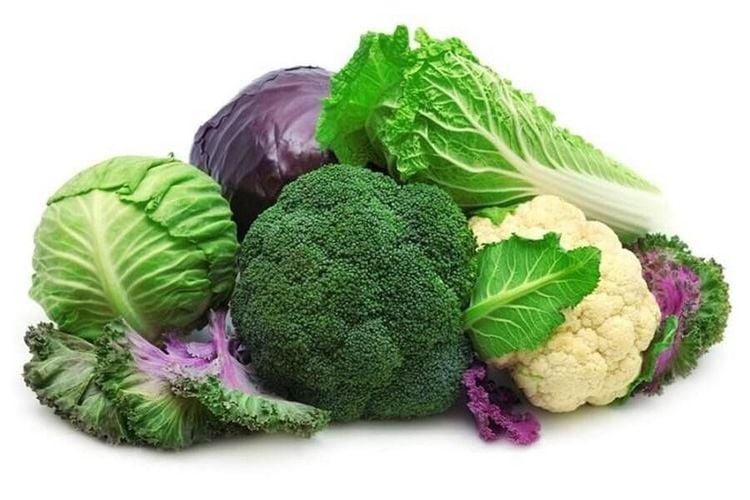
Các loại rau họ cải như súp lơ và bông cải xanh có thể giúp giảm nguy cơ ung thư ở người u nang vú
3. Some other notes
A healthy diet can help prevent many chronic diseases and malignancies, including breast cancer. In addition, many other lifestyle habits can also affect your cancer risk in a positive way. For example, regular exercise, adequate rest, and no smoking help protect against breast cancer. Maintaining a healthy body weight can also help reduce your risk of disease. Recently, several studies have shown that certain skin care products may increase the risk of developing breast cancer. For example, antiperspirant use is associated with an increased risk of breast cancer. However, more research is still needed to support this point. Exposure to pesticides, as well as compounds found in materials such as plastic, can disrupt hormones in the body and increase the risk of breast cancer. Therefore, choosing body care products and garden chemicals carefully can reduce your risk of breast cancer. Remember that routine medical appointments and breast cancer screenings are important for early detection and diagnosis. Don't hesitate to talk to your doctor if you have questions about breast malignancy and your risk for breast cancer.
Currently, in order to join hands in "Say no to breast cancer", Vinmec International General Hospital has built a breast cancer screening package including: Breast examination with an oncologist or a gynecologist; Mammogram (2 sides); 2D breast ultrasound on both sides.,..
Advantages of breast cancer screening at Vinmec:
Team of highly qualified and experienced doctors. Comprehensive professional cooperation with domestic and international hospitals: Singapore, Japan, USA, etc. Comprehensive treatment and care for patients, multi-specialty coordination towards individualizing each patient. Having a full range of specialized facilities to diagnose the disease and stage it before treatment: Endoscopy, CT scan, PET-CT scan, MRI, histopathological diagnosis, gene-cell testing, .. Full range of main cancer treatment methods: surgery, radiation therapy, chemotherapy, stem cell transplant... Breast cancer screening package at Vinmec for the following subjects:
Female customers, over 40 years old. Customers wishing to be able to screen for breast cancer Customers are at high risk of cancer – especially customers with a family history of breast cancer. Women of reproductive age, perimenopause and menopause. Women who are having symptoms of breast cancer such as: pain in the breast, lump in the breast, etc Reference sources: healthline.com, webmd.com




